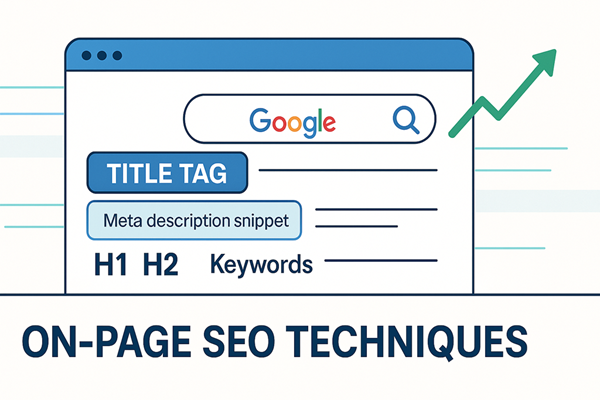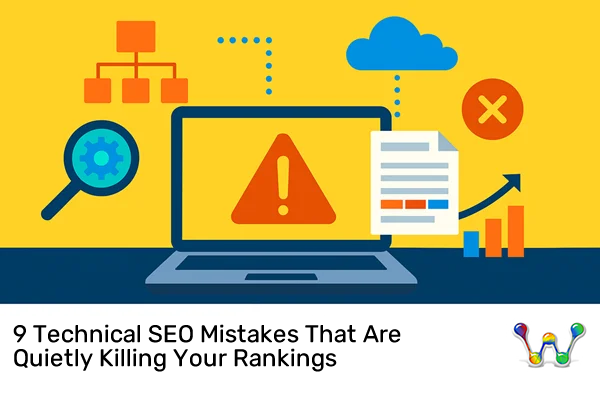Our technical SEO services ensure your website is built to perform. We audit and optimise site speed, mobile-friendliness, crawlability, indexation, structured data, and more, making sure search engines can access, understand, and rank your website.
Technical SEO
£900.00 Original price was: £900.00.£725.00Current price is: £725.00.
- Comprehensive technical audit
- Mobile usability optimisation
- Canonical tag implementation
- Structured data implementation
- Crawlability and indexing fixes
SEO Booster
£495.00 Original price was: £495.00.£375.00Current price is: £375.00.
- Web page SEO analysis
- Content rewrite - 1 page
- Full website audit
- 3 blog posts of 500+ words each
- Ranking check for 10 keywords
- Backlink analysis
Webpage Optimisation
£200.00 Original price was: £200.00.£145.00Current price is: £145.00.
- Comprehensive on-page audit
- Keyword optimisation
- META tags optimisation
- Content optimisation
- Internal linking strategy
Technical SEO refers to the process of optimising a website’s infrastructure using techniques that help search engines crawl, index, and rank it more effectively. It focuses on aspects like site speed, mobile-friendliness, structured data, XML sitemaps, and fixing broken links. Ensuring a website is technically sound improves user experience and enhances its chances of ranking higher on Google.
What are the benefits?
Improved search engine crawling & indexing
A well-optimised website makes it easier for search engines like Google to crawl and index your pages, ensuring they appear in search results.
Faster website speed & better user experience
Technical SEO improvements, such as optimising images and reducing unnecessary code, lead to faster load times, which enhances user experience and reduces bounce rates.
Higher search rankings & increased traffic
A technically sound website meets Google’s best practices, improving its chances of ranking higher, attracting more organic traffic, and boosting conversions.
Check out our other SEO services

Key Technical SEO elements
Key elements of technical SEO include:
- Site speed optimisation: Ensuring fast loading times for a better user experience and improved rankings.
- Mobile-friendliness: Making sure the site is responsive and works well on all devices.
- Crawlability & indexing: Using XML sitemaps, robots.txt, and structured data to help search engines understand your site.
- Secure website (HTTPS): Ensuring your site is secure with an SSL certificate to protect user data.
- Fixing broken links & redirects: Preventing errors like 404 pages and managing URL structures effectively.
Other examples of technical SEO elements include canonical tags to handle duplicate content and schema markup to enhance search visibility.
Best practices for technical SEO
Follow these essential best practices to ensure your website is optimised for search engines, improves user experience, and ranks higher on Google.
Optimise website speed
Ensure fast loading times by compressing images, using a content delivery network (CDN), minimising unnecessary code, and optimising scripts for better performance.
Mobile-friendliness
Make sure your website is fully responsive and provides a seamless, user-friendly experience across all devices, Google now prioritises mobile-first indexing in its rankings.
Crawlability & indexing issues
Use XML sitemaps, robots.txt files, and structured data markup to help search engines better understand, crawl, and index your website content effectively.

Mistakes to avoid
Here are some key mistakes to avoid when it comes to technical SEO:
- Neglecting mobile optimisation: With mobile-first indexing, failing to optimise for mobile devices can severely impact your rankings.
- Ignoring crawl errors: Not regularly checking for crawl errors can prevent search engines from indexing your site properly.
- Overlooking site speed: Slow page load times hurt the user experience and search rankings, so speed optimisation is crucial.
- Unstructured URLs: Using messy or inconsistent URL structures can confuse both search engines and users.
- Not using HTTPS: An insecure website (HTTP instead of HTTPS) can be flagged as unsafe, impacting trust and SEO.
- Skipping XML sitemap creation: Failing to create or update an XML sitemap makes it harder for search engines to discover and index your content.
Avoiding these mistakes will help improve your site’s SEO health and visibility.
Google’s algorithm impacting technical SEO
Google’s algorithm can significantly impact technical SEO. Google regularly updates its algorithms to improve search results, and many of these changes affect technical SEO aspects of a website. Here are some key ways the algorithm impacts technical SEO:
- Page speed: Google prioritises fast-loading pages, so slow sites may see lower rankings.
- Mobile-first indexing: Websites not optimised for mobile may experience ranking drops since Google uses the mobile version for indexing.
- Crawlability and indexability: Technical issues like broken links or blocked resources can prevent proper indexing and affect visibility.
- Structured data: Correct schema markup helps Google understand content and may lead to rich snippets.
- HTTPS and security: Google favours secure sites, so not using HTTPS could hurt rankings.

FAQ's
Your technical SEO questions answered
Does technical SEO require coding?
Yes, technical SEO often requires some coding knowledge. It involves tasks such as optimising the website structure, improving page speed, managing redirects, and working with HTML, CSS, or JavaScript to ensure search engines can crawl and index the site effectively.
Why is technical SEO important?
Without a strong technical foundation, even the best content may not rank well. Technical SEO ensures your site is accessible, fast, and properly structured, which improves visibility in search results and enhances the user experience.
Is technical SEO off-page?
No, technical SEO is primarily on-page. It focusses on optimising the technical aspects of your website (like speed, mobile friendliness, and site structure) to improve its search engine visibility. Off-page SEO involves factors like backlinks and social signals.
How long does technical SEO take?
The complexity of the website and the issues it needs to address determine how long technical SEO takes. It can take anywhere from a few weeks to a few months to implement and see the full results, especially for large or older websites with significant technical problems.
What is the difference between technical SEO and SEO?
SEO is a broad practice that includes both on-page (content optimisation, keywords, etc.) and off-page (backlinks, social media signals) efforts. Technical SEO, on the other hand, focuses solely on the technical elements of a website that impact its ability to be crawled and indexed by search engines.
Why is a technical SEO checklist important for my website?
A technical SEO checklist acts as a roadmap to ensure your site is crawlable, indexable, fast, mobile-friendly, and free of errors. By following a checklist, we will always make sure not to overlook critical fixes, like broken links, missing sitemaps, or poor site speed, that directly impact search rankings and user experience.
Do I need professional help for technical SEO?
While some aspects can be managed in-house with the right tools, many businesses prefer working with experts to ensure all issues are properly addressed. If you’re looking for a complete solution, our SEO Packages include technical SEO services along with on-page and off-page optimisation.






